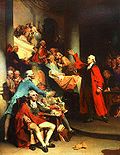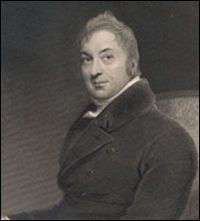The main purpose our blogging is to communicate our ideas, opinions, and stories both fact and fiction. The best part about the the blogs is information that we might not find in our local news, even if we read it online. Sharing that information is important, especially if it educates, sparks conversation and new ideas. We have all found places that are our favorites that we read everyday, not everyone’s are the same. The Internet is a vast place. Unlike “Punting the Pundits which focuses on opinion pieces mostly from the mainstream media and the larger news web sites, “Around the Blogosphere” will focus more on the medium to smaller blogs and articles written by some of the anonymous and not so anonymous writers and links to some of the smaller pieces that don’t make it to “Pundits” by Krugman, Baker, etc.
We encourage you to share your finds with us. It is important that we all stay as well informed as we can.
Follow us on Twitter @StarsHollowGzt
This is an Open Thread.
Our friends at Firedoglake are finally back on line after nearly two days of server issues. There is lots of great articles that deserve a full read.
From Jon Walker at FDL Action:
At The Dissenter, Kevin Gosztola:
- The Justice Department’s Seizing of AP Phone Records: A Continuation of Attacks on Freedom of the Press
- Attorney General Eric Holder’s Contemptible Defense of the DoJ’s Seizure of AP Phone Records
- Attorney General Eric Holder Testifies Before the House Judiciary Committee (Live Updates)
At the News Desk, DSWright:
- Review Of IRS Data Shows Political Bias
- Obama White House Tries To Distance Itself From AP Spying Scandal By Citing Support For Bill It Lobbied Against
- Homeland Security Shuts Down Bitcoin Use By Startup Company
On economics, Dean Baker at Beat the Press:
- Did You See the “Air of Crisis” Hovering Around the Budget Deficit?
- How We Know that the Investment Industry Has No Argument Against Caps on 401(k)s
- Steven Pearlstein Tries to Rescue His Austerity Pushing Friends
- How Sick Is France’s Labor Market?
Paul Krugman at his blog Conscious of a Liberal:
Over at Corrente lambert continues his ObamaCare Clusterf**k and points an MMT article out that Platinum coin made it further than we ever imagined.
From Electroninc Frontier Foundation:
- Disappointing Unsealing Decision in Aaron Swartz Case
by Cindy Cohn and Tim Trevor - New Bipartisan Bill Proposes Real Fixes to Bad Copyright Law
by Parker Higgins
Over at Grist:
- Utilities vs. rooftop solar: What the fight is about
By David Roberts - Americans’ main complaint about water is that it tastes too much like water
By Sarah Miller - Kosher salt: Don’t stress about sodium intake (unless you’re an average American)
By Claire Thompson - U.N. to world: “Eat your insects.”
By John Upton
At ProPublica:
- On Victory Drive, Soldiers Defeated by Debt
by Paul Kiel - The Fed’s Credibility Problem
by Kim Eisenger
Charles P. Pierce at Esquire’s Politics Blog gives us Unprecedented Precedents and lots of unrelated news.
And the last word from Atrios on the continued beatings.



Recent Comments